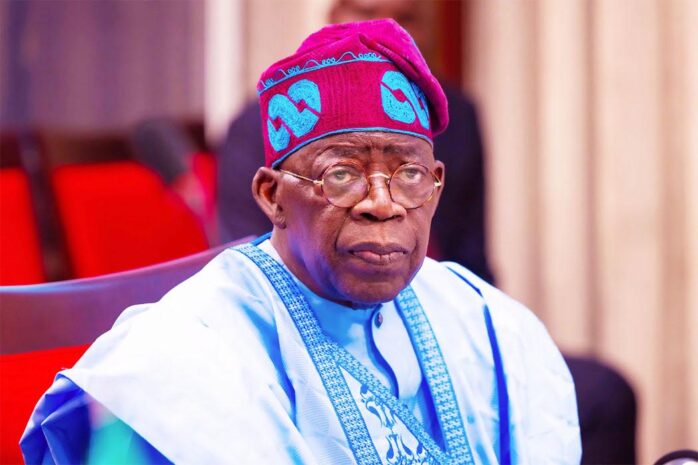By Oluseyi Taiwo-Oguntuase
Copyright independent

As Nigeria commemorates 65 years of independence, agricultural stakeholders have expressed concern that a sector once celebrated as the backbone of the economy and the pride of the nation’s exports has, over time, declined into a state they describe as disappointing, neglected, and burdened with untapped potential.
From cocoa to palm oil, groundnuts to rubber, Nigeria once commanded global recognition for its agricultural products.
In the years immediately following independence, the sector accounted for more than 60 percent of the nation’s Gross Domestic Product (GDP), provided the bulk of employment, and generated the foreign exchange that sustained the economy.
But today, the story is far less flattering. Agriculture, while still employing millions, has been relegated to the margins, replaced by crude oil revenues, inconsistent policies, and import dependence that continues to undermine food security.
Stakeholders in separate interviews with Daily Independent, while reflecting on this 65-year journey said that Nigeria has not lived up to its agricultural promise.
They pointed out that despite its natural endowments—fertile land, abundant water, and a vibrant population—Nigeria has failed to transform agriculture into the engine of economic growth it could be.
They stressed that the sector has been undermined by policy inconsistency, over-reliance on oil, neglect of rural infrastructure, lack of incentives, absence of credit and insurance, and the heavy burden of risks borne by farmers alone.
For Yinka Adesola, a stakeholder in the shea industry, “We have not made any progress and no hope of making progress with the way things are.”
According to her, despite vast arable land and a population passionate about farming, she lamented that the country has failed to harness these strengths.
“With the massive arable land, and the willing population that love agriculture, Nigeria should be earning massively from agricultural exports. Unfortunately, the reverse is the case. We are importing what we ought to produce.”
Her frustration reflects a reality that has become all too common: Nigeria, once a leading exporter of food crops, now finds itself dependent on imports of staples like rice, wheat, and even maize— products that the nation has every capacity to grow in abundance.
According to Adebowale Onafowora, Founder and MD of BIC Farms Concepts: “At 65, I view Nigeria’s agricultural journey not through a lens of celebration but through one of stark, regrettable reality. The answer to your question is a resounding NO: we have failed to make the progress expected of a nation blessed with almost 80 million hectares of arable land and unparalleled natural resources.”
He recalled that at independence in 1960, agriculture stood as the backbone of the economy, that cocoa, groundnuts, and palm oil were not just crops; they were pillars of prosperity.
“Today, our reliance on food imports has surged, contributing to inflation, joblessness, and insecurity. Nigeria’s story is not one of stagnation alone, but of decline from an enviable global position.
“We moved from being a global agricultural powerhouse to a nation that struggles to feed its own citizens, effectively outsourcing our food security,” he lamented.
Dr. Abiodun Onalaja, CEO of Hyst Global Business Ltd and producer of Okun Rice, framed the issue as one of squandered opportunities.
“Blessed with vast arable land, abundant water resources, and a youthful population, the country has long been touted as a potential agricultural powerhouse. Yet, despite some pockets of progress, food insecurity remains a stubborn challenge, and agriculture has not become the engine of prosperity many envisioned in 1960,” he said.
He acknowledged certain successes, including improved production of crops like cassava, yams, and maize, and policy initiatives such as the Growth Enhancement Support (GES) scheme, which once demonstrated how well-targeted interventions could boost farmers’ access to inputs. But these gains were neither sustained nor scaled up.
“Still, these achievements have been inconsistent, overshadowed by policy reversals, underfunded extension services, and a chronic neglect of rural infrastructure,” he explained.
He said that the obstacles are both systemic and structural.
“Compounding the problem are issues of insecurity in many states of the country, farmer–herder conflicts, and climate shocks, which have displaced communities and discouraged investment.
“Meanwhile, post-harvest losses remain high due to weak storage, poor road networks, and limited processing facilities. The reality is that Nigeria continues to import food it could otherwise produce in abundance locally.”
For Iyiola Mojeed, the Chairman Poultry Association of Nigeria (PAN), Lagos state chapter, the backward slide of Nigerian agriculture reflects a deeper failure of national development.
He even went as far as questioning the timing of independence itself. “In fact, it was a blunder to have taken independence at that early stage, the reason being that where we were at the time of taking independence is far better than where we are today,” he said.
He pointed to Nigeria’s proud record as the world’s leading cocoa producer and trainer of other nations in palm oil production.
“Malaysia, who is now the best palm oil producer, was trained by Nigeria, but now we are nowhere to be found. Imagine, those days our crude oil ranked among the best in the world but today, where are we?”
His concerns extend beyond crops to systemic neglect.
“Ordinary staple food like maize and rice that are supposed to be in high production with the good weather conditions Almighty God has endowed us with, we cannot even make good use of. Agriculture as a course in Nigerian universities that is supposed to be a hot cake has been relegated to the ground. You could hardly see a student intentionally prepared to study Agriculture in the university. Why? Because they are the poorest paid in the labour market.”
He painted a grim picture of rural neglect—no incentives for farmers, poor road infrastructure, weak education systems in villages, and a lack of government support.
“In the whole world, nowhere is farming done with personal savings, but in Nigeria that is the system we are practising. Believe me, anywhere such a system is being held, you remain on subsistence level till the heaven falls.”
For him, the risks borne by Nigerian farmers with no safety nets or insurance make meaningful progress impossible.
Dr. Olukayode Oyeleye, an Agribusiness strategist in his view placed much of the blame on Nigeria’s over-reliance on petroleum revenues.
“Nigeria has not made the kind of progress expected of a nation with vast arable land and natural resources. The problem has been largely from over-reliance on revenues from petroleum. Since the return of democracy in 1999 to date, politicians have merely paid lip service to agriculture, using it for campaigns but doing next to nothing while in office.” He stressed that funds channeled into agriculture often lacked clear, pragmatic focus. “Informal, smallholder farmers still dominate the food production system in Nigeria. There are sparse policies in operation that could generate or sustain interest in primary agriculture and other aspects of the value chain. Credit facilities have not been easily accessible, especially to smallholders. Insurance services are practically absent.”
The result, according to Oyeleye, is that farming remains too risky.
“The risks associated with weather, natural events, disasters, political crisis, economic doldrums and global externalities are not mitigated for Nigerian farmers. Therefore, fewer people are ready to get involved in commercial agriculture.”
Another voice of concern came from Anibe Achimugu, President of the National Cotton Association of Nigeria (NACOTAN), who believes Nigeria’s performance falls far short of its promise.
“Looking back at 65 years since independence, I unfortunately believe that Nigeria is not where it ought to be given the huge human and natural resources available, a lot of which remain untapped. We are way behind the expected and predicted progress envisaged.” He pointed to the country’s shift from being an exporter to a net importer of food.
“Nigeria used to be a significant exporter of agricultural and other products to the world, but now we find ourselves as major importers of practically everything that we can potentially produce in-country. There is no doubt that some achievements have been recorded, but the agricultural sector is still performing below par when you consider our size, potential, and strategic importance in Africa and the world.”



